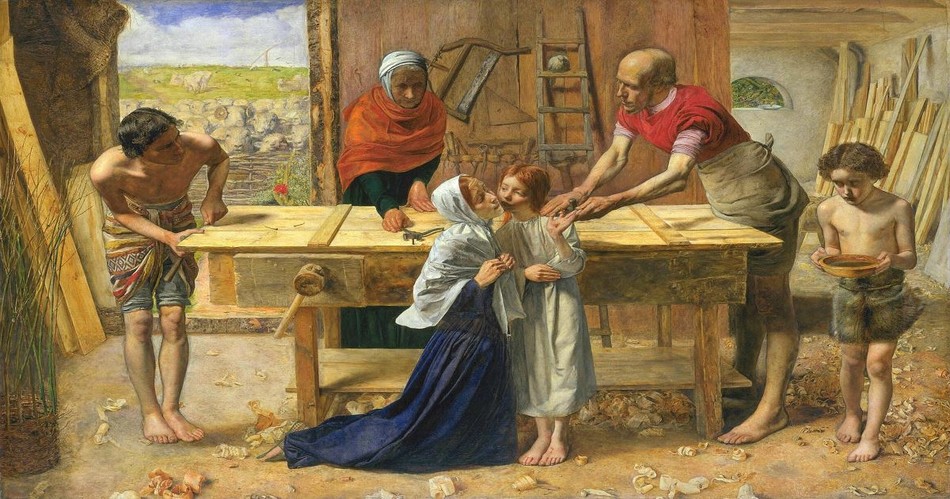The Gospels provide valuable insight into Jesus' early life, including the intriguing detail that He worked as a carpenter. His earthly father, Joseph, was also a carpenter, which suggests that Jesus likely learned the trade under his father's guidance, following the common practice of sons apprenticing with their fathers. The Bible, specifically the Gospel books of Mark and Matthew, describe Jesus as a carpenter. In Mark 6:3, the people in Jesus’ hometown respond to His teaching in the synagogue with skepticism: “Is not this the carpenter, the son of Mary and brother of James and Joses and Judas and Simon? And are not his sisters here with us?” Their tone suggests surprise—perhaps even offense—that someone they knew as a carpenter could speak with such authority.
Where Does the Bible Say Jesus was a Carpenter?
Similarly, in Matthew 13:54-55, the crowd questions, “Where did this man get this wisdom and these mighty works? Is not this the carpenter’s son? Is not his mother called Mary? And are not his brothers James and Joseph and Simon and Judas?”
In both accounts, the Greek word translated as “carpenter” is tekton, which can also mean artisan, craftsman, or builder. This suggests that Jesus, like Joseph, may have been more than a woodworker—perhaps a laborer skilled in various materials, including stone and wood. In a region like Nazareth and Galilee, where timber was scarce but stone was plentiful, many homes and structures in Galilee were built primarily from stone. It’s reasonable to imagine that Jesus’ work was stonemason, stone carver, or general builder rather than strictly a carpenter in the way we understand the term today.
This background casts new light on Jesus’ later words. As His disciples admired the grandeur of the temple, Jesus warned them: “Do you see all these great buildings? Not one stone here will be left on another; every one will be thrown down” (Mark 13:1-2). Coming from someone familiar with the effort and care required to build, this prophecy speaks to the impermanence of human achievements compared to God’s eternal kingdom.
Jesus’ early work in building may have symbolized His greater purpose: to build His church (Matthew 16:18), rescue the lost (Luke 19:10), and prepare a place for those who believe in Him (John 14:1-3). Just as He once shaped physical materials, Jesus now shapes hearts and lives, constructing something far more enduring than any earthly structure.
Jesus Understood the Value of Work
The idea of Jesus holding a job—working hard, sweating under the sun, and dealing with the challenges of manual labor—grounds His humanity in a powerful way. Jesus's work as a carpenter wasn’t just a passing detail in His story; it was part of God’s intentional design. Jesus fully embraced human life, including the experience of daily work. Philippians 2:6–8 reminds us that Jesus “humbled Himself by becoming obedient to death—even death on a cross.” That humility extended to His years of quiet labor, long before He ever performed a miracle or preached a sermon.
Jesus' early profession also shaped how He related to the world. His knowledge of construction and building likely influenced His teachings. Consider His conversation with the disciples as they admired the grand temple in Jerusalem. Jesus responded with a sobering prophecy: “Do you see all these great buildings? Not one stone here will be left on another; every one will be thrown down” (Mark 13:1-2). For someone who understood how much effort went into constructing those massive structures, this statement carried even more weight. It wasn’t just a comment on architecture—it was a profound reminder that earthly things are temporary, while God’s kingdom is eternal.



_639003522088907085.jpg)